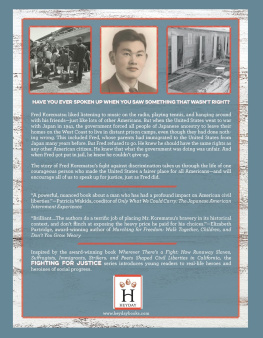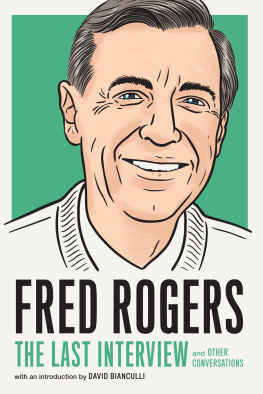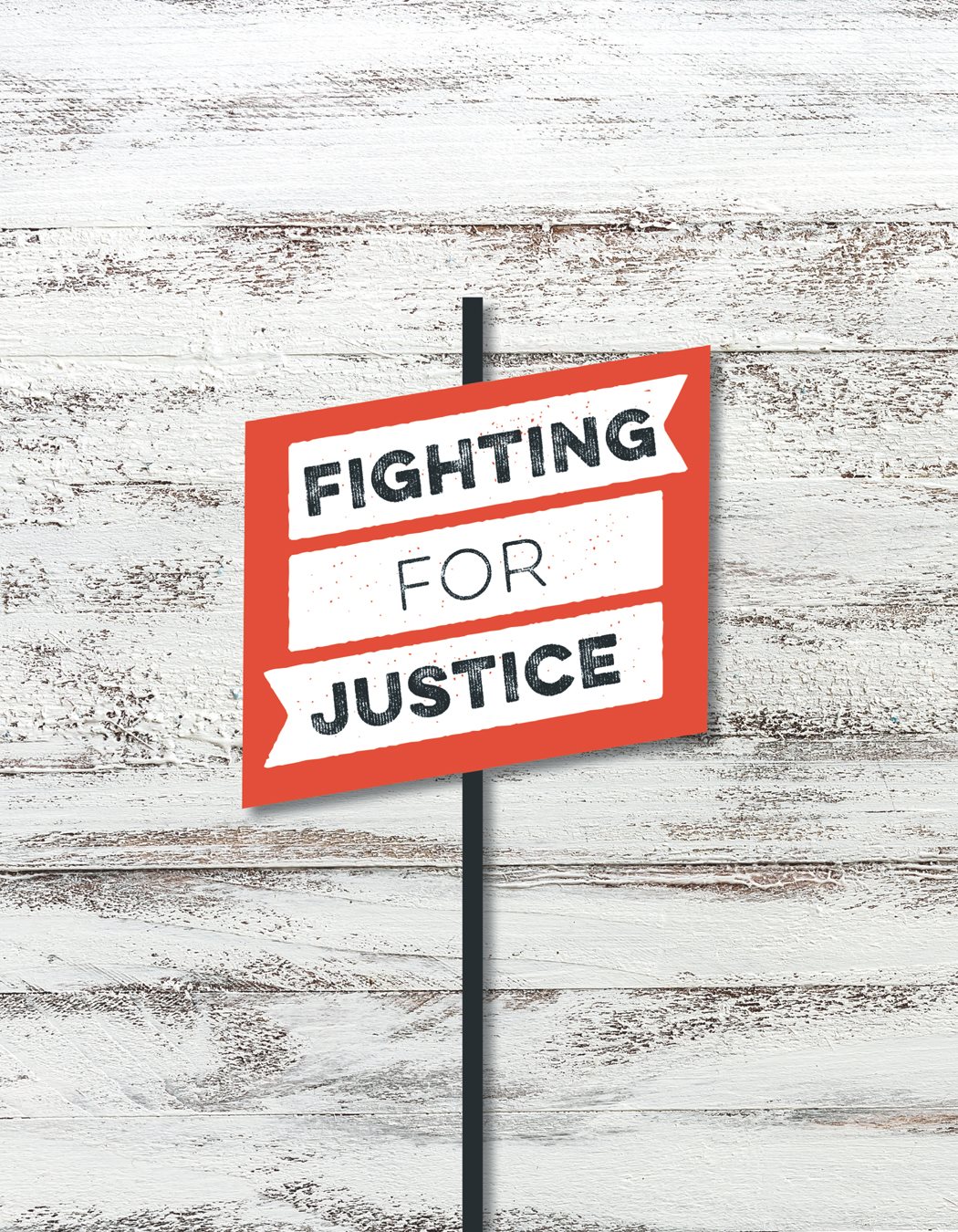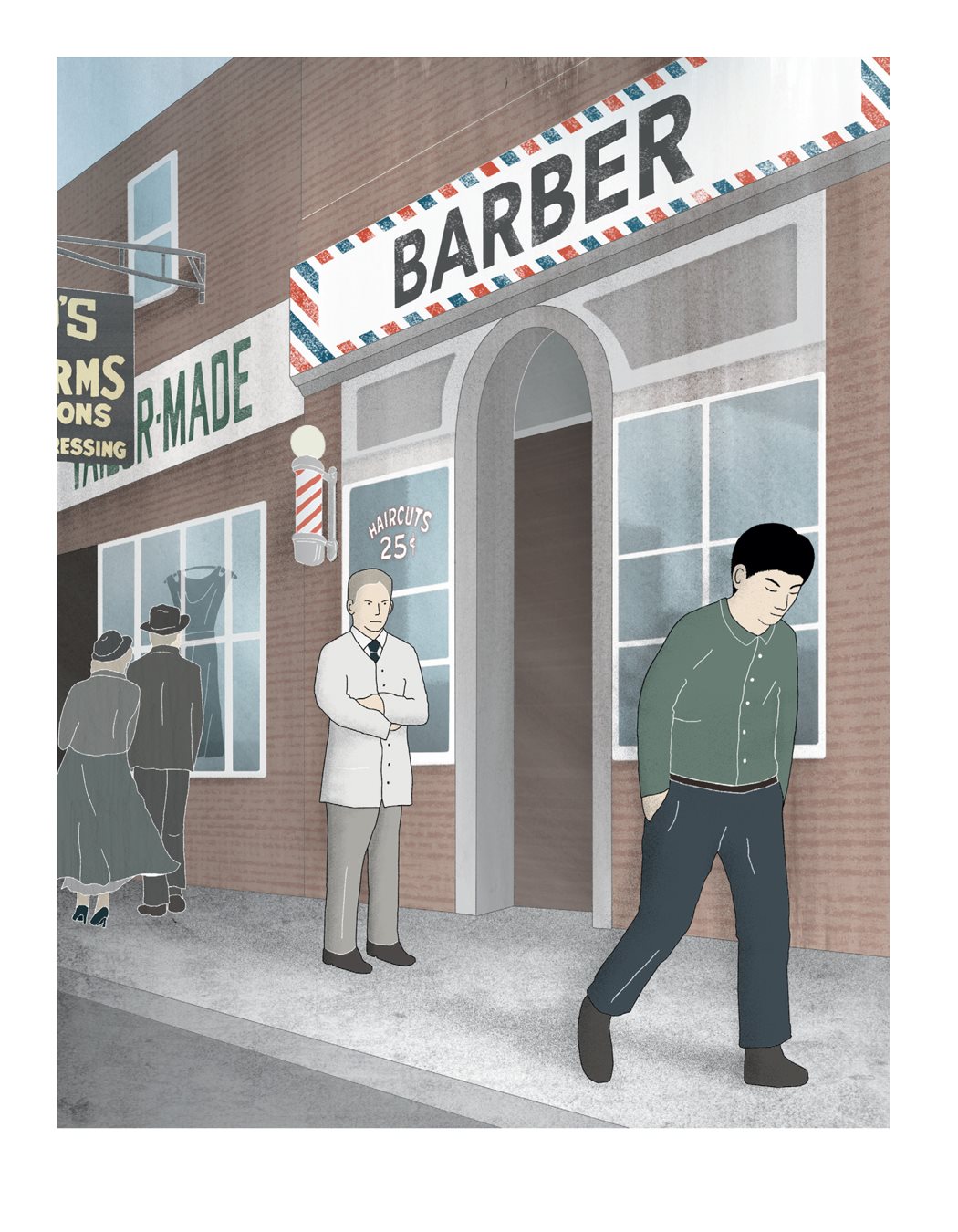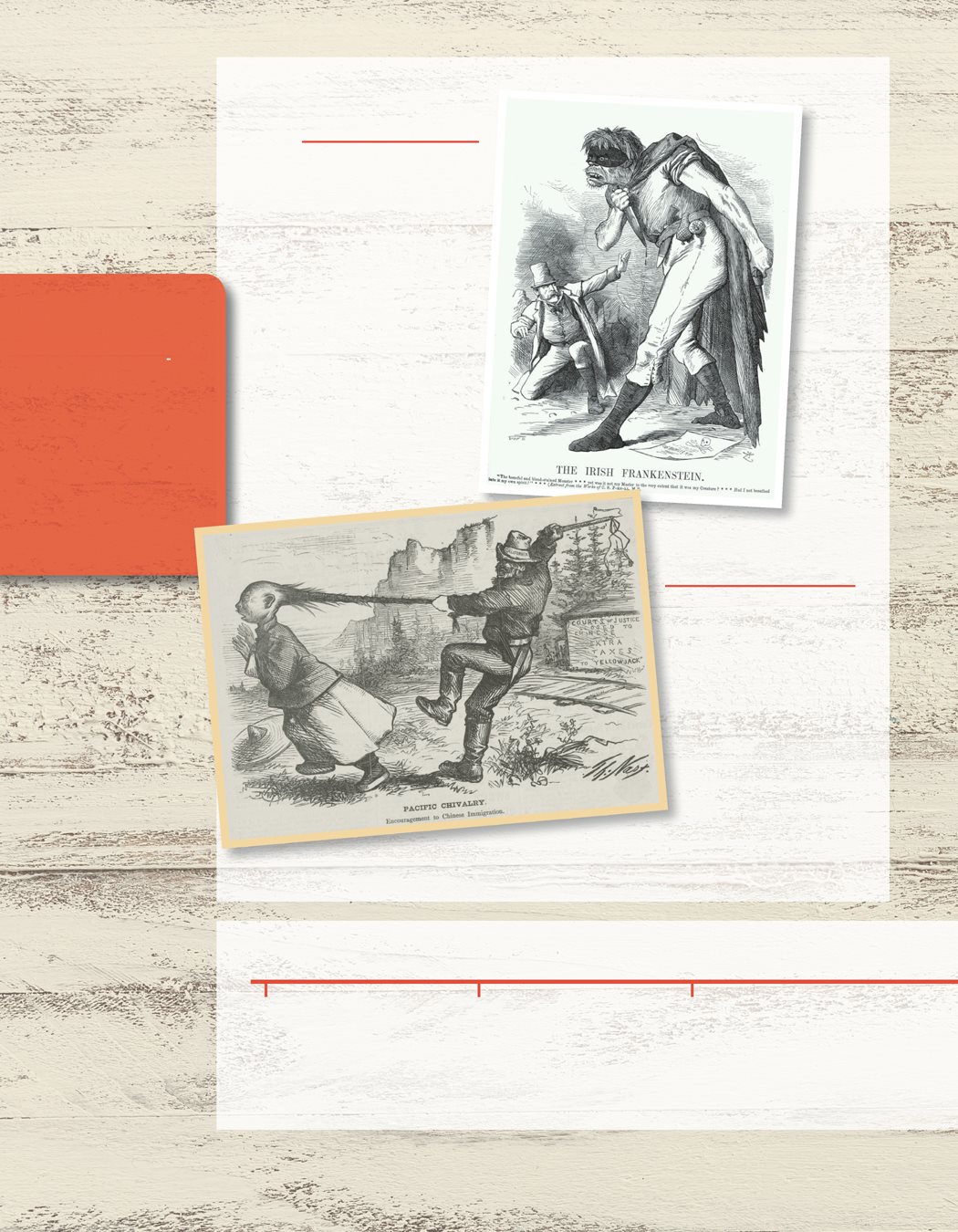Fred Korematsu
Speaks Up
Laura Atkins and Stan Yogi
Illustrated by Yutaka Houlette
Heyday, Berkeley, California
Have you ever spoken up
when you saw something
that wasnt right?
Sometimes people treat one another badly. Sometimes rules and
laws are unfair. It can take one brave person, or a group of people
acting together, to speak up and make a difference.
Throughout history, people have fought for justice, even when it
meant taking a stand against powerful people or working hard to
make their voices heard.
In the end, these people helped to make the world a fairer place.
Fred Korematsu spoke up for justice.
You can speak up for justice too.
Support for this printing was provided by the California State Librarys California Civil Liberties
Public Education Program.
In this book, italics are used to denote direct quotes, whether speech or thoughts.
Corresponding sources appear on .
Text 2017 by Laura Atkins and Stan Yogi
Illustrations 2017 by Yutaka Houlette
All rights reserved. No portion of this work may be reproduced or transmitted in any form
or by any means, electronic or mechanical, including photocopying and recording, or by any
information storage or retrieval system, without permission in writing from Heyday.
Library of Congress Cataloging-in-Publication Data
LC record available at http://lccn.loc.gov/2016008098
Cover Illustration: Yutaka Houlette
Back Cover Photographs (from left to right): by Dorothea Lange, courtesy of the
National Archives and Records Administration; courtesy of Karen Korematsu at
the Fred T. Korematsu Institute; by Dorothea Lange, courtesy of the National
Archives and Records Administration
Cover Design: Ashley Ingram
Interior Design/Typesetting: Nancy Austin
See Image and Text Credits and Permissions on page 95.
Orders, inquiries, and correspondence should be addressed to:
Heyday
P.O. Box 9145, Berkeley, CA 94709
(510) 549-3564, Fax (510) 549-1889
www.heydaybooks.com
10 9 8 7 6 5 4 3
Contents
Freds hair needs cutting.
His friends have the snazziest styles
short and sharp,
slicked down and combed back.
All the rage.
Up until now, Freds mother
has cut his hair.
Straight.
Simple.
Fred wants to get his hair cut
by a real barber.
He walks into his local barbershop.
The waxy smell of pomade oil
mingles with the sound of snipping scissors.
Hey boy, what do you want?
the barber says.
I just want to get a haircut ,
Fred tells him.
We dont cut hair of your kind.
Why?
Because Freds parents are from Japan.
The barbershop wont serve people
who look like Fred.
Fred knows
this isnt fair.
He has as much right to that
haircut as any of his friends.
Fred walks out
past other barbershops
that will not cut his hair
and restaurants
that will not serve him food.
He goes to Oaklands Chinatown
where people who look like Fred
are welcome.
He gets his hair cut
in the latest style
just like his friends.
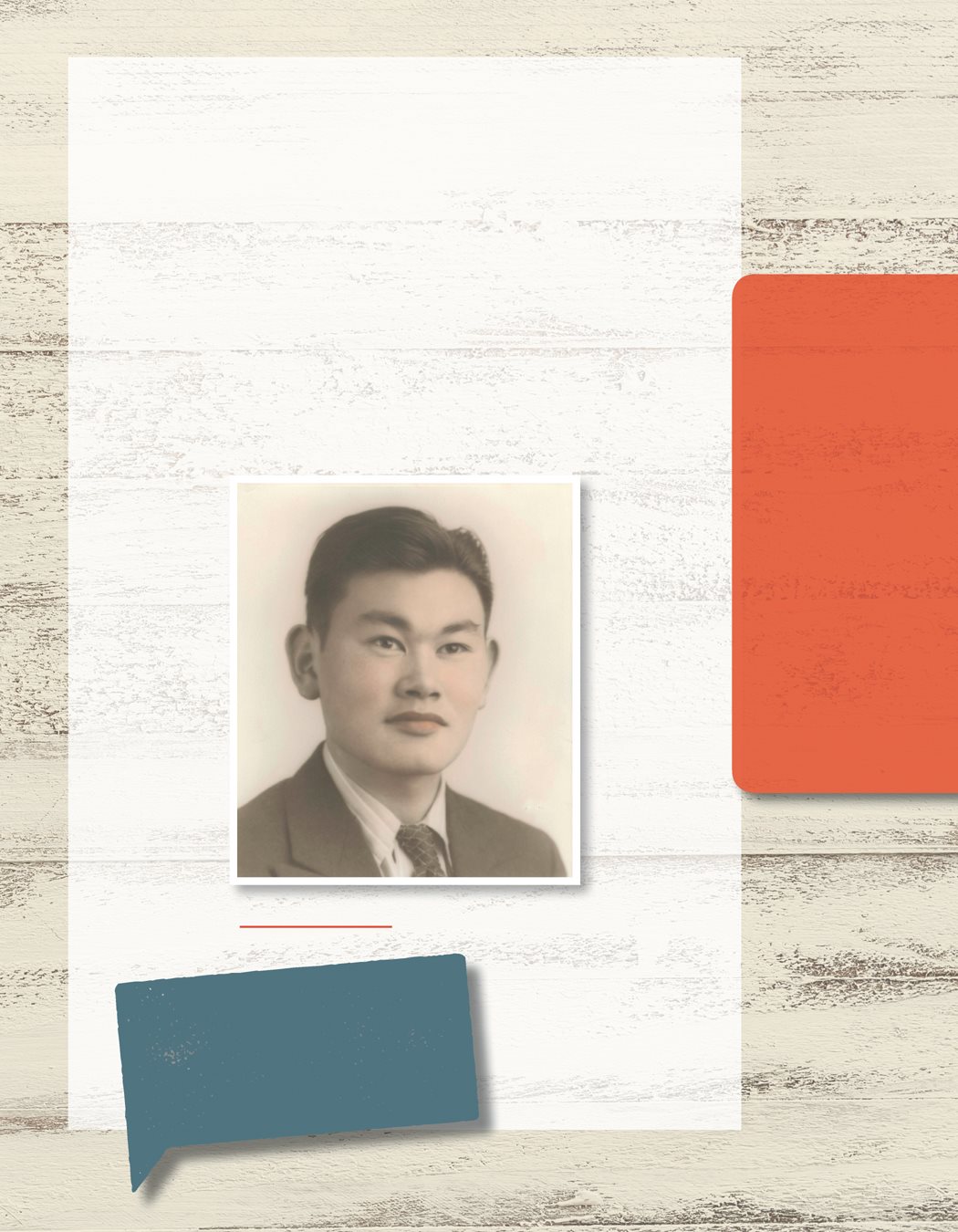
Discrimination
Fred grew up in Oakland, California. When the barber refused to cut
Freds hair, he discriminated against Fred because of how he looked.
He treated Fred differently from White customers because Fred
wasnt White like the barber. He was Japanese American .
Throughout United States history, many different groups have
experienced this kind of discrimination and worse.
People experience discrimination because of their ancestry
because they or their parents come from another country. People
of color also face discrimination because of their race . Fred faced
discrimination for both of these reasons.
Fred in the year 1940.
JAPANESE
AMERICAN:
an American of
Japanese ancestry.
DISCRIMINATION:
the act of treating
a person or group
unfairly because of
what they look like
or what they believe.
Discrimination based
on race is called
racism.
ANCESTRY:
a persons family ori
gin or background.
RACE:
a group of people
identified as similar to
one another because
of supposed physical
traits, such as skin
color.
Have you ever been
treated badly
because of how you
look or speak?
In the 1840s and 1850s,
immigrants from Ireland
faced discrimination from
Americans in East Coast
cities who considered
the Irish violent and
dangerous. Cartoons
like this supported these
stereotypes .
This 1869 cartoon of
a White man attacking a
Chinese immigrant shows
the anger many Americans
felt toward Chinese
people. In the late 1800s ,
many Chinese came to the
Western United States to
mine for gold and build
railroads.
IMMIGRANT:
someone who moves
to a new country to
live there perma
nently.
STEREOTYPE:
an unfair and untrue
belief about a group
of people that lumps
all of them together
as being the same,
instead of unique
individuals.
Timeline
1865
Civil War ends. Slavery is
abolished, but Southern
states begin passing
segregation laws.
1882
United States stops allowing
Chinese laborers into the
country. This was called the
Chinese Exclusion Act.
1896
United States Supreme
Court decides segregation
is legal.

